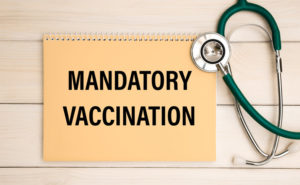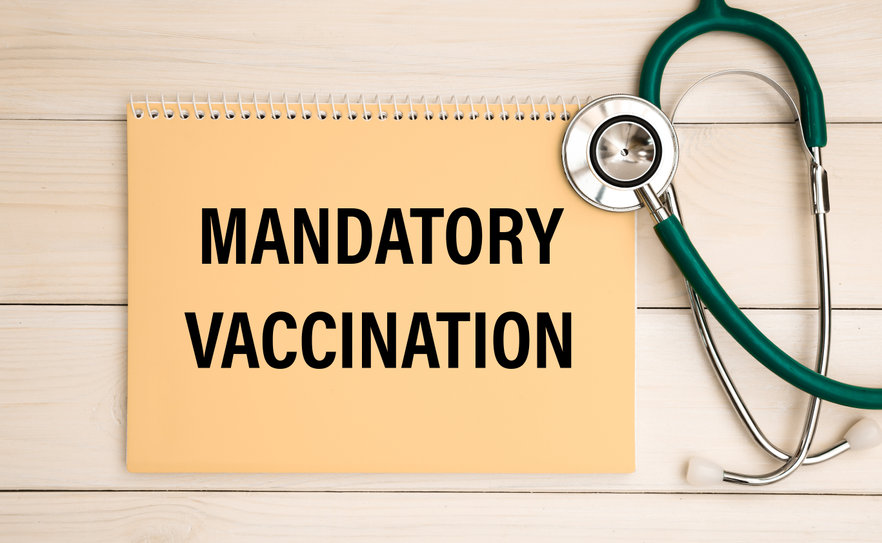Update: Some States Halt Healthcare Worker Vaccine Mandate, But Not Florida!!!
If you hadn’t heard, a federal judge in Louisiana granted a nationwide injunction on the healthcare worker vaccination mandate in response to lawsuits filed by 24 states challenging the mandate. However, a federal appeals court said yesterday that the injunction was too broad and limited it only to the 24 states that challenged the rule and were granted an injunction.
But it appears that Florida is not one of those states included in the injunction. What does this mean? Healthcare workers in Florida may still be mandated to have get the shot in accordance with CMS’s final rule (discussed below)! A federal court of appeal hearing the State of Florida’s challenge to the vaccine mandate denied Florida’s request for an injunction and found that the rule was valid. Read the court’s opinion here.
However, this mandate may be limited by Florida’s vaccine law, which we discussed in our blog Florida Broadens Exemptions for Vaccine Mandate.
__________________
Posted on November 5, 2021
As a follow up to our blog NEWS FLASH: Long-Awaited OSHA Vaccine Rule is Here! new rules have been released regarding mandatory vaccines for healthcare workers and employers regulated by Medicare and Medicaid.
On November 5, 2021, the Department of Health and Human Services (HHS) and the Centers for Medicare & Medicaid Services (CMS) released their “Interim Final Rule” (IFR) regulations on mandatory vaccines for staff of Medicare and Medicaid certified providers and suppliers. The IFR exempts healthcare entities that are not regulated by the CMS as well as employees who work 100% remotely.
The IFR requires vaccination of all other employees who have any physical contact with patients, staff, or the healthcare site itself.
The IFR complements the June 21, 2021 OSHA COVID-19 Healthcare Emergency Temporary Standard designed to protect healthcare workers from exposure to COVID-19.
When does it go into effect and for how long?
The IFR takes effect November 5, 2021, and covered employers must comply with the “Phase 1” regulations—which require employees to receive their first COVID-19 vaccine dose of a primary series or a single dose (or to request an exemption), by December 6, 2021. “Phase 2” requires covered employees to be fully vaccinated by January 4, 2022. Currently, the IFR has no set end date, and can remain in effect for up to three years. However, CMS indicated that it may decide to keep these rules as a permanent requirement for covered employers going forward.
Who is a covered employer and/or Medicare/Medicaid certified provider or supplier?
- Ambulatory Surgical Centers
- Hospices
- Psychiatric Residential Treatment Facilities
- All-Inclusive Care for the Elderly
- Hospitals (including acute care, psychiatric hospitals, children’s hospitals, long-term care, etc.)
- Long-Term Care Facilities, including Skilled Nursing Facilities and Nursing Facilities
- Home Health Agencies
- Clinics of Rehabilitative Therapies (including speech and physical therapy)
- Mental Health Centers
- Home Infusion Therapy Suppliers
Thus, if you work for any of these types of employers, you will be subject to the CMS IFR for mandatory vaccination.
What does the IFR require?
- Covered employers must keep records as outlined below:
- Each employee’s vaccination status, including whether a staff member has received an additional booster dose.
- Documentation supporting vaccination exemption requests and outcomes.
- Proof of vaccination for employees, including vaccine cards and/or health records demonstrating vaccination status.
- Vaccine documentation is considered confidential medical information, therefore, employers must keep these records confidential and stored separately from employees’ personnel files in accordance with federal and state law.
- Employers must maintain these records as long as the IFR rules remain in effect.
- Covered employers must create a process for staff to request exemptions from COVID-19 vaccinations if they need a medical or religious accommodation.
- Covered employers must create contingency plans for employees who are not fully vaccinated. The contingency plans must ensure that these employees are vaccinated quickly, and prevent them from providing care, treatment, or other services for the employer or its patients until they have received, at minimum, their first dose of a COVID-19 vaccine.
Is there a testing option for unvaccinated employees?
Unlike the new OSHA ETS for private employers, CMS determined that vaccination is a more effective measure to reduce the spread of COVID-19 than regular testing. Thus, the IFR does not allow for testing as an alternative to vaccination (although covered employers can still require regular testing of vaccinated workers).
What if an employee is not granted an exemption and refuses to be vaccinated?
- Employers must prevent unvaccinated covered employees from providing care, treatment or any other work, until receipt of, at a minimum, the first COVID-19 vaccine dose. In other words, these workers will not be able to work until vaccinated.
If you have questions about the new rules on mandatory vaccines, consult with experienced employment attorneys who can guide you on the law, its requirements and your rights.

